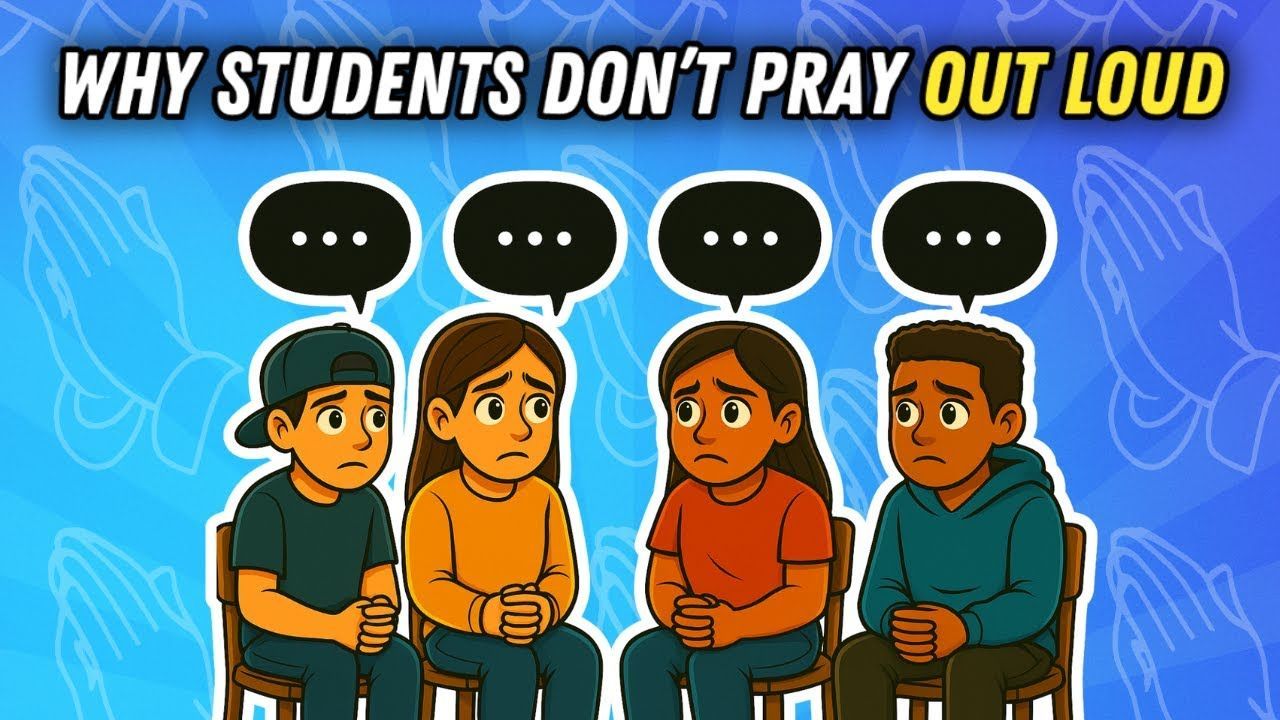The Shocking Insights into Gen Z Evangelism: Here's What Works | BTYR Podcast • Ep 71
Reaching Gen Z: The Challenges and Opportunities of Evangelism
Check out the podcast
here!
Evangelism is changing, and Generation Z is at the center of this shift. While previous generations viewed sharing the gospel as a vital part of their faith, new research shows that many young believers today see it differently. In a recent episode of the Beyond Youth Room podcast, Ryne and Keith explored Barna’s Reviving Evangelism report, which highlights how Gen Z perceives and practices evangelism. Their findings present both challenges and opportunities for youth ministries aiming to equip young Christians to share their faith.
A Changing Perspective on Evangelism
One of the most eye-opening statistics from the report is that 38% of Christian Gen Z respondents believe it is wrong to share one’s faith with the intent of conversion. This marks a significant departure from older generations. In 2019, nearly 60% of young Christian adults (ages 18-35) felt it was appropriate to respectfully share their beliefs in hopes of persuading someone to follow Christ. The decline in this conviction suggests that Gen Z may view evangelism more as a conversation than a call to decision.
Additionally, 59% of Gen Z Christians believe the best outcome of an evangelistic conversation is simply gaining a better understanding of each other’s perspectives. This matches closely with the 63% of non-Christian Gen Z respondents who share this view. These findings indicate that, for many in this generation, evangelism is not about winning someone over but rather fostering mutual understanding.
The Influence of Culture and Church
This shift in perspective raises an important question: Why does Gen Z see evangelism this way? One possible explanation is the cultural emphasis on personal truth—“What’s true for you isn’t necessarily true for me.” Many young people have grown up in environments where religious tolerance is highly valued, sometimes at the expense of gospel urgency.
At the same time, many churches focus heavily on helping students understand their own faith but may not prioritize equipping them to share it with others. If evangelism isn’t emphasized in youth ministry, young believers may feel uncertain or even reluctant to share their faith. In some cases, churches may not be addressing evangelism at all, leaving cultural narratives to shape how Gen Z views faith-sharing.
Redefining Evangelism: Invitation vs. Gospel Sharing
Another key finding is how Gen Z defines evangelism. Many young Christians equate evangelism with inviting someone to church rather than personally sharing the gospel. While inviting friends to a service is valuable, it isn’t the same as explaining the message of Jesus and calling someone to faith. This distinction is crucial for youth ministries to address.
Moving Forward
If we want to see Gen Z engage in evangelism, we need to equip them with the confidence and tools to do so. This means:
- Teaching them why sharing the gospel matters.
- Providing practical training on how to engage in faith conversations.
- Emphasizing that evangelism isn’t just about inviting someone to church—it’s about sharing Jesus Himself.
The Power of One-on-One Conversations
Recent research among unchurched, self-identified non-Christian Gen Zers revealed fascinating insights into how they prefer to engage in spiritual discussions. While the highest response was “none of these,” the most positively received option (at 25%) was engaging in a one-on-one conversation with a friend. This far outpaced attending an in-person church service with someone (14%) and even a digital one-on-one spiritual conversation (the second-highest response).
These findings highlight the power of personal evangelism—one-on-one conversations are the most effective way to reach Gen Z with the gospel. Digital conversations also provide a significant opportunity, suggesting that texting or messaging a friend about spiritual matters can be impactful. Even more than attending an online church service alone (16%) or with someone else (13%), the data suggests that direct, personal engagement is key.
Encouraging Students to Engage
Given these insights, how can we equip students to engage in one-on-one evangelism?
- Encourage lunch invites: “Hey, come sit with me at lunch.”
- Suggest intentional meetups: “Let’s hang out after school.”
- Leverage existing relationships: Conversations with classmates, teammates, or friends can naturally turn spiritual.
- Use digital opportunities: Starting a faith-based conversation over text or social media can be just as effective.
One major takeaway is that many students are already having these conversations—we simply need to help them recognize and lean into those opportunities. Rather than trying to force a new strategy, we should affirm and support what’s already happening.
The Role of Digital Evangelism
Interestingly, in-person classes designed to explore Christianity (11%) were just as effective as Christian podcasts or webinars (also 11%). This reinforces the idea that digital media is a valuable tool. Some churches are shifting to online content for this reason—reaching far more people with podcasts and webinars than they ever could with in-person classes.
However, while online resources are valuable, they should serve as a catalyst for one-on-one engagement. For instance, instead of just listening to a Christian podcast alone, what if students watched it with a friend and discussed it afterward? The same applies to online church services—inviting a friend to watch and discuss a message can be more impactful than a solo experience.
Prioritizing Evangelism Methods
Based on the data, the top priorities for evangelism should be:
- In-person one-on-one conversations – The most effective way to share faith.
- Digital one-on-one conversations – An easy and accessible approach.
- Watching an online church service alone – A potential entry point.
- Attending an in-person service with someone – Still valuable but less preferred.
This shift aligns with a growing trend: Many young people identify as “spiritual but not religious.” While the structure of the church remains essential, evangelism today must focus more on personal, relational outreach than just inviting people to a service. The “come and see” approach is losing ground to the “go and tell” method.
Training Students for Gospel Conversations
To equip students for effective evangelism, we use the “Ask, Admire, Admit” approach:
- Ask thoughtful spiritual questions (e.g., “What do you believe about God?” rather than “Do you go to church?”).
- Admire what you can about their faith (e.g., acknowledging their morality or values).
- Admit that we all need Jesus—we aren’t speaking from a place of superiority but from shared need.
We also train students in the Life in 6 Words gospel framework:
- God created us to be with Him.
- Our sins separate us from God.
- Sins cannot be removed by good deeds.
- Paying the price for sin, Jesus died and rose again.
- Everyone who trusts in Him has eternal life.
- Life with Jesus starts now and lasts forever.
This method ensures students can clearly and concisely articulate the gospel.
A Real-Life Example
One Saturday, during our monthly “Go Share Day,” a student struck up a conversation with a BMX rider. He noticed the rider attempting a trick and used it as an entry point. After engaging him in conversation, the student shared the gospel using the Life in 6 Words framework. The rider not only understood but had already been reading the Bible on his own. Right then and there, he prayed to receive Christ.
This encounter reminds us that God is already working in people’s lives—we just need to be available and faithful in sharing. You never know when the right moment will come, but when it does, a simple conversation can change someone’s eternity.











